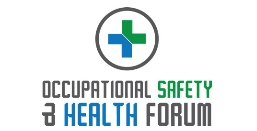New guidelines designed to protect the safety of children in out-of-school settings have been published by BSI, applicable to all providers of activities for children and offering a clear framework to embed safeguarding measures into governance, policies and procedural operations.
This includes activities that are provided free of charge or at cost, by paid staff or by volunteers.
The introduction of the standard was led by Mark Bramah, a former Senior Detective, whose expertise within the police encompassed the investigation of child abuse.
Following his 30-year career with the police, Bramah took on the role of an Independent Chair for Hampshire Children Services, ensuring the safety and well-being of children. Additionally, he is responsible for managing individuals who pose a risk within a religious organisation and conducts independent reviews of child Safeguarding practices.
It was research and his experiences that led Bramah to approach BSI, as he explained: “The issue of safeguarding children in adult environments has very much been at the core of my professional, academic, and even personal life. Being able to offer a clear framework for organisations that are not schools to safeguard children has to be the right thing to do. Allowing independent scrutiny of safeguarding measures demonstrates an organisation’s commitment to getting it right.”
“I approached BSI to find out how we could introduce a new standard that protects our children outside of school and discovered that we would need to raise the funds to do this.
“I was introduced to Lady Edwina who has done so much for children already with her charity, One Small Thing, an organisation that aims to redesign the justice system for women and their children and she very generously agreed to fund this new standard to protect children in out-of-school settings.”
“Once we had found our sponsor, we needed to find a Technical Author for the new standard. I was fortunate to have worked with Dr Simon Fox on a previous research project in a similar field and was delighted when he accepted and became the Technical Author for the PAS 5222.”
In addition to Mark’s work, the Independent Inquiry into Child Sexual Abuse (IICSA), was released in 2022 where concerns were raised that some out-of-school settings were putting children at risk by failing to adhere to basic child protection standards.
The report recommended that those who come into contact with children should follow child protection standards and have suitable policies and procedures in place, and that safeguarding policies should be clear and easy to follow and implement.
The new Child safeguarding – Provisions for out-of-school settings – Specification (PAS 5222:2024) is sponsored by recruitment, safeguarding and HR provider, Bramah HR, Mark’s daughter’s HR agency. Founded in 2021 by Gabriella Bramah, Bramah HR provides efficient and effective recruitment, safeguarding and HR solutions for its clients.
PAS 5222 is designed to close the gap where organisations or individuals hold a responsibility for children’s care outside of education but are not covered by statutory guidance and where ambiguity regarding safe practice exists. This includes out-of-school activities such as hospitality, business, charities, uniform and non-uniformed cadet providers, leisure industry, security industry, festivals, religious organisations and many more.
It is intended to help organisations and individuals implement a child safeguarding framework by providing clarity and covering governance, policies, processes and procedures. PAS 5222 also supports organisations and individuals to implement measures in a cost-effective way. While intended for use in the UK, it may be used in Europe, and is relevant to UK-based providers taking children abroad and international providers taking children to the UK.
Anne Hayes, Director of Sectors, BSI said: “Prioritising safeguards for children, among society’s most vulnerable, can ensure a safe environment in which they can flourish and develop in their formative years. This new standard is intended to address the lack of statutory guidance and processes for organisations and individuals responsible for the care of children in non-educational settings.
“The guidance is designed to empower organisations, parents and carers alike to have confidence about care being given to children, whether that’s at an after-school sports club or when pupils are taken on a foreign experience.”
Areas of focus include:
• Governance, accountability and responsibility
• Developing a safeguarding and child protection policy
• Assessing risks (including identifying, assessing relevance, determining risk appetite, monitoring, mitigation, recording and documenting)
• Documenting safeguarding measures
• Employment checks
• Inducting new personnel
• Safeguarding training
• Record-keeping
• Safeguarding incidents response plans and reviews



